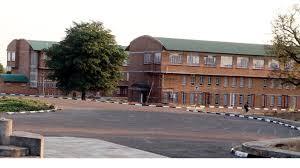News / National
Lupane hospital construction clocks 25 years
16 May 2025 at 09:34hrs |
0 Views

The construction of Lupane General Hospital in Matabeleland North province, which began over 25 years ago, remains severely delayed due to prolonged non-payment of contractors, Health and Child Care Deputy Minister Sleiman Kwidini revealed in Parliament.
Responding to written questions from legislators seeking a progress update on the project, Kwidini disclosed that only 22.7% of the hospital's construction has been completed to date.
He highlighted that while some buildings are up to 70% finished, specialised work - such as tiling, installation of fire safety systems, oxygen piping, heating, kitchen ventilation, and laundry equipment - still needs to be carried out before the hospital can be operational.
"We have experienced prolonged periods without payment, significantly affecting progress," Kwidini told Parliament. "We request that payments be clearly specified with corresponding certificate numbers. We also request payment in United States dollars as most of our suppliers sell materials and goods in this currency. Additionally, our employees are no longer willing to accept ZiG payments."
The hospital project has lingered since 1999, when Lupane was designated the provincial capital of Matabeleland North. Despite promises and budget allocations, progress has moved at a snail's pace, prompting criticism from regional stakeholders who blame a lack of political will from central government.
Currently, residents of greater Matabeleland North rely heavily on Bulawayo's Mpilo Central Hospital and United Bulawayo Hospitals (UBH) for referral medical services, putting considerable strain on these facilities.
The proposed 250-bed Lupane General Hospital was intended to ease this pressure, providing much-needed healthcare services closer to home and reducing dependence on mission hospitals and urban centers.
Government officials had pledged that the hospital would be completed before the 2023 elections, especially after receiving a substantial portion of the ZWL$33 billion health budget from Treasury.
However, the continued delays have dashed these hopes, leaving many in the province frustrated and underserved in terms of accessible medical care.
Responding to written questions from legislators seeking a progress update on the project, Kwidini disclosed that only 22.7% of the hospital's construction has been completed to date.
He highlighted that while some buildings are up to 70% finished, specialised work - such as tiling, installation of fire safety systems, oxygen piping, heating, kitchen ventilation, and laundry equipment - still needs to be carried out before the hospital can be operational.
"We have experienced prolonged periods without payment, significantly affecting progress," Kwidini told Parliament. "We request that payments be clearly specified with corresponding certificate numbers. We also request payment in United States dollars as most of our suppliers sell materials and goods in this currency. Additionally, our employees are no longer willing to accept ZiG payments."
The hospital project has lingered since 1999, when Lupane was designated the provincial capital of Matabeleland North. Despite promises and budget allocations, progress has moved at a snail's pace, prompting criticism from regional stakeholders who blame a lack of political will from central government.
Currently, residents of greater Matabeleland North rely heavily on Bulawayo's Mpilo Central Hospital and United Bulawayo Hospitals (UBH) for referral medical services, putting considerable strain on these facilities.
The proposed 250-bed Lupane General Hospital was intended to ease this pressure, providing much-needed healthcare services closer to home and reducing dependence on mission hospitals and urban centers.
Government officials had pledged that the hospital would be completed before the 2023 elections, especially after receiving a substantial portion of the ZWL$33 billion health budget from Treasury.
However, the continued delays have dashed these hopes, leaving many in the province frustrated and underserved in terms of accessible medical care.
Source - newsday
Join the discussion
Loading comments…





























